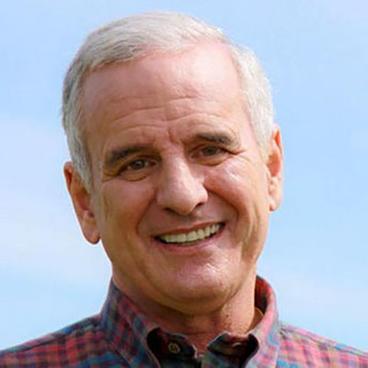When you’ve served in public office for four decades, you likely have some valuable insights to share when it comes to leadership and policy making.
Former Minnesota Gov. Mark Dayton did just that during his two years as an executive leadership fellow at the University of Minnesota’s Center for Integrative Leadership.
Dayton was governor of Minnesota for eight years, leaving office in January 2019. During his 40-year career in public service, Dayton was also elected a United States senator and Minnesota state auditor, and served in a variety of other capacities in state government.
During his time as an executive leadership fellow, Dayton shared his insights into public service leadership with students, faculty, and other interested learners. He also worked with the Center’s Academic Co-Director, Humphrey School Associate Professor Kathy Quick, to write a series of reflections on collaboration and leadership. Read his essays here.
Here are some key excerpts from his essays:
Building relationships in polarized times
• It's essential to meet people face to face: A key principle of leadership is bringing people together with disparate views and giving them some time and space. It’s also helpful to bring people together in a smaller group where they don’t feel judged.
• As a political leader, you can't get anything done by yourself. You have to build a base of support, and that means building and maintaining relationships across differences. That relationship building is ultimately inherent to democracy, and how democracies are meant to work. Compromise means you agree to things you don't agree with, but ultimately, that's where you get the results.
• A big surprise for me was that intransigence was often considered a virtue in politics, and compromise was seen as a failure and weakness.
Using evidence in decision making
• It’s important to seek a breadth of evidence through multiple perspectives. Social problems are so complex, but unfortunately, people often gravitate to the evidence and answers that they tend to agree with, and can find on the internet. They seek out sources of information that are heavily biased and weighted toward their particular ideologies, their own points of view. It’s very hard to break through all the flotsam that is out there.
• Surrounding yourself with a strong team who will present you with evidence on all sides of an issue, having conversations with people who hold different positions on that issue, and consistently seeking out those varying pieces of evidence yourself, will enable leaders to make the most informed decisions possible.
• When we’re talking about the common good, change is not immediate. It always takes time. It takes a significant amount of effort and collaboration to develop and sustain momentum for real and lasting change.
'Leaning in' to political courage and ethical decision making
• There’s been a dramatic decline in leadership ethics. These days, big businesses pay zero taxes or get a refund on their taxes, and they're proud of it. The trend in business and politics is often to do whatever you can get away with to your advantage, even if that makes things harder on everybody else. It's become the prevailing ethic in our country, and I think it's eventually going to have catastrophic consequences.
• Social inequities must be addressed. Where you land on this planet is an accident of birth, and it has such an effect on what your options are and what your possibilities are. The five years I spent working as a teacher in New York City and at a social service agency in Boston are ultimately what inspired me to work in government. What I was seeing were the casualties of the injustices of American society, and that if I wanted to change anything, government was a source for change, for better or for worse.
• When I think about leaning in as a leader, I’m reminded of John F. Kennedy's Profiles in Courage, which shares stories of people who risked – and in many cases gave up – their political careers to do the right thing. It reminds me of the 2013 vote to legalize same-sex marriage in the Minnesota Legislature. There were some rural Democrats for whom that vote was almost fatal, but they voted for it because they believed it was the right thing to do. When we practice self-awareness and hold on to a strong foundation of ethics, there's a moral compass that rises above all other thoughts and considerations. Those are profiles in courage.
About the Center for Integrative Leadership
The Center is a University of Minnesota-wide collaboration representing our professional schools’ commitment to shared leadership for public good. Our University partners are the Carlson School of Management, the Humphrey School of Public Affairs, the College of Education and Human Development, the School of Public Health, and the University of Minnesota Law School. Together, they bring expertise and capacity in diverse professions that can help imagine and implement shared leadership.


